“Yo momma” - Afghanistan, Poland, Japan, France, England…
I am all for peace, but I am also realistic. For instance, during World War II numerous Jewish uprisings erupted in ghettos and camps. Would it make sense for the Jewish fighters to negotiate a truce with the Germans? Not really, because they intended to kill them anyway.
In more recent example, negotiating truce and surrender with the Islamic State was impossible for similar reasons. Those who tried were later executed in some cruel and spectacular way: beheaded with a knife, drowned in a cage, burned alive.
Sometimes, with some enemies, peace is not an option. Not because “war is good”, but because they simply are not interested in a rational deal, “you take this, I take that and we can stop fighting”.
Is Russia one of them? The only way to determine is to check the history of previous Russian truce&peace treaties.
The last time Russia signed anything like this was in 1997, when Russia and Chechnya agreed to “forever” reject the use of force. This was a follow up to the Khasavyurt agreement of 1996, ending the First Chechen War with a “5-year ceasefire”.
A Chechen guerilla next to the ruins of the Presidential Palace in Grozny, January 1996. Mikhail Evstafiev, CC BY-SA 3.0, via Wikipedia
The truce was an unpleasant surprise to Russian public opinion. In spite of an overwhelming advantage in manpower and equipment, the mighty Russian army was unable to conquer a tiny breakaway republic with a population of around a million and no regular army). They managed to raze the capital to the ground, they burned entire villages (with their inhabitants) with flamethrowers, and yet they could not control the territory, sustained heavy losses, and eventually were forced to ask for truce.
Russians love to think they are invincible. Of course, they aren’t - no empire is - but it’s very important for their self-perception. Therefore, they hate the memory of Khasavyurt and put it in the general container of “bad things from the horrible 90’s”.
The “eternal peace” and “5-year truce” lasted about 3 years. In August 1999 Russia restarted hostilities, citing an incursion of rogue Chechen warlord Shamil Basayev into neighbouring Dagestan and mysterious bombings of apartment buildings, where over 300 people died - that was supposed to be a violation of peace treaties by the Chechen side.
Both claims were doubtful. First, as a rogue warlord Basayev was not affiliated with the Chechen state. Second, no evidence that Checheyna had anything to do with the bombings was ever presented.
Russia captured and killed some suspects, but none of them was from Chechenya - and they were tried in secrecy. People running independent investigations of the bombings were all killed in the following years (e.g. Anna Politkovskaya).
Many questions regarding these bombing remain unanswered. Russians avoid asking them not only because they are afraid to do so, but also because they were generally happy to get rid of the Khasavyurt humiliation.
Solovyev and Girkin hate each other, but they will both agree that Russia does not need “another Khasavyurt”. I think both have said something like this regarding the current war.
The rest of us (non-Russians who happen to live in the neighbourhood) would agree for different reasons. If you sign a “5 year truce” with Russia, they will attack you in 3 years, tops.
They will invent some pretext to put the blame on you. It will be illogical and far fetched, just like the justification to invade Chechenya, but Elon Musk will find it convincing. And with him, his army of betas on Twitter.
Let me remind you that Ukraine in theory was protected by a Russo-Ukrainian treaty of 1990, the Minsk Treaty od 1990 (not to be confused by the Minsk Treaties of 2014-2015, also violated by Russia), Budapest Memorandum (1994), Treaty of Friendship (1997), and the Russo-Ukrainian Border Treaty (2003). I’m not even talking about the broader treaties, such as the UN Charter.
Bottom line: Russia will not negotiate peace or truce treaty until forced by major defeat. And this treaty will be valid only as long as they remain too weak to attack again.
Still from “Cargo 200” by Aleksei Balabanov, 2007
They had such a defeat in Afghanistan. The war lasted over 9 years (1979-1989), and it was similar to the current one in some aspects.
Americans saw the opportunity to inflict heavy losses to their enemy at a fairly low cost - a Stinger missile cost a fraction of the plane it shots down. And since the Soviets never declared the war to anyone, they had no one to negotiate peace with.
Formally, the Soviet army was in Afghanistan to help protect a friendly government from Western invasion. Back in the Soviet day, it was called “brotherly help” and it even entered common parlance (eg. “back off dude, or I’ll brotherly help the crap out of you”).
Eventually, a strange diplomatic solution (repeated later by the Minsk agreements) was brokered by Pakistan. The Geneva Accord was formally a peace treaty between Pakistan and Afghanistan. Soviet Union was not a party, but merely a co-guarantor (together with USA).
Thus, Russians can claim they never lost the war in Afghanistan, because they never fought it in the first place. And what about the dozens of thousands of Soviet Army casualties?
First of all, they didn’t exist (it was top secret; I recommend the excellent Russian thriller “Cargo 200”). And second, they didn’t die in a war. What war?
The Geneva Accord did not bring peace to Afghanistan. The only part that was ever implemented was the withdrawal of the Red Army.
I think the history lesson is: the treaty ending the war against Ukraine must be signed by Russia as the belligerent. A diplomatic charade like the Minsk agreements will not bring peace anyway.
I believe in 20. century Russia only twice lost a war in such decisive manner it was forced to sign a genuine peace treaty that brought an actually lasting peace. It was defeated by Poland in 1921 and by Japan in 1905.
The Polish-Soviet war ended with treaty of Riga. The best thing one can say about it is that it brought 18 years of peace.
A scheme explaining the Polish-Soviet war, from: “A Sketch-map History of the Great War and After, 1914-1939”, by Irene Richards, J.B. Goodson and J.A. Morris, via warwick.co.uk
The Polish delegation was dominated by nationalist right, dreaming of Poland as a nation-state. The centre-left (whose traditions are dear to me) was pursuing a slogan “the free with the free, the equals with the equals” to denote the future relationships between Poland, Ukraine, Belarus and Lithuania.
The Soviets were beaten so badly they were ready to give up as much territory as Poland would have requested. They even offered Minsk themselves. However, that would mean too many Belarussians and Ukrainians would live in the future Poland, reducing the electoral chances of the nationalist right.
In a very controversial move, Polish delegation accepted more modest eastern border. It was supposed to be compensated by 30 million golden pre-revolutionary rubles. Of course, not even a single kopeika was paid (that’s in general a problem with reparations: it’s easy to write them down in a peace treaty, collecting them after the war is a whole different thing).
For me, the worst part of the treaty of Riga is that Poland threw is allies under the bus. We fought the Soviets together in 1920, and now we signed a separatist treaty that was essentially partitioning our former allies. Not cool, nationalist right, not cool.
On a side note: I hope to live to see the incarnation of the ideals of Polish progressives from 100 years ago. Poland, Lithuania, Latvia, Belarus and Ukraine, the free with the free, the equals with the equals, in European Union and NATO.
The list of the nations that managed to beat Russia in the last century finishes with Japan. The Russo-Japanese war of 1904-1905 was a crushing defeat of the decaying tzarist empire.
Japanese propaganda map from 1904. Public domain via Wikipedia.
It was the first defeat of an European great power in a colonial war. Other great powers were not happy about it and the resulting treaty of Portsmouth was limiting Japanese gains (mostly due to American pressure).
The peace between Russia and Japan lasted for decades, but the treaty did not bring actual peace to the territories of Manchuria and Korea, where this war was being fought. In a way it never ended (the Korean war formally is still going on).
So another lesson about peace treaties is that a treaty might be signed, both parties might actually adhere to it - and yet millions of people will be slaughtered for decades in the same war zone. That’s what happens when you refuse to hear the most interested party, the people who live there. Peace negotiations between Russia and USA cannot bring peace to Ukraine, just as peace between Russia and Japan did not bring peace to Manchuria and Korea.
But the most important lesson from history is that Russia is not invincible. “Russia cannot be defeated” is propaganda nonsense aimed at the people who don’t even know their own history. Even France and England are on the list of “countries who defeated Russia” (Crimean war, 1853-1856), but I wanted to limit myself to the present and last century for the sake of brevity.
This post is already too long, anyway.

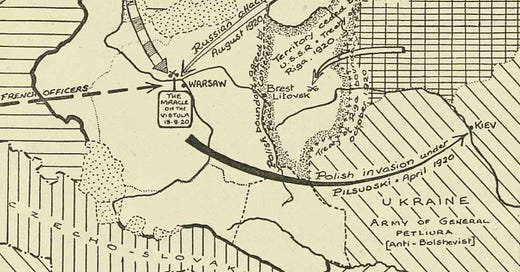


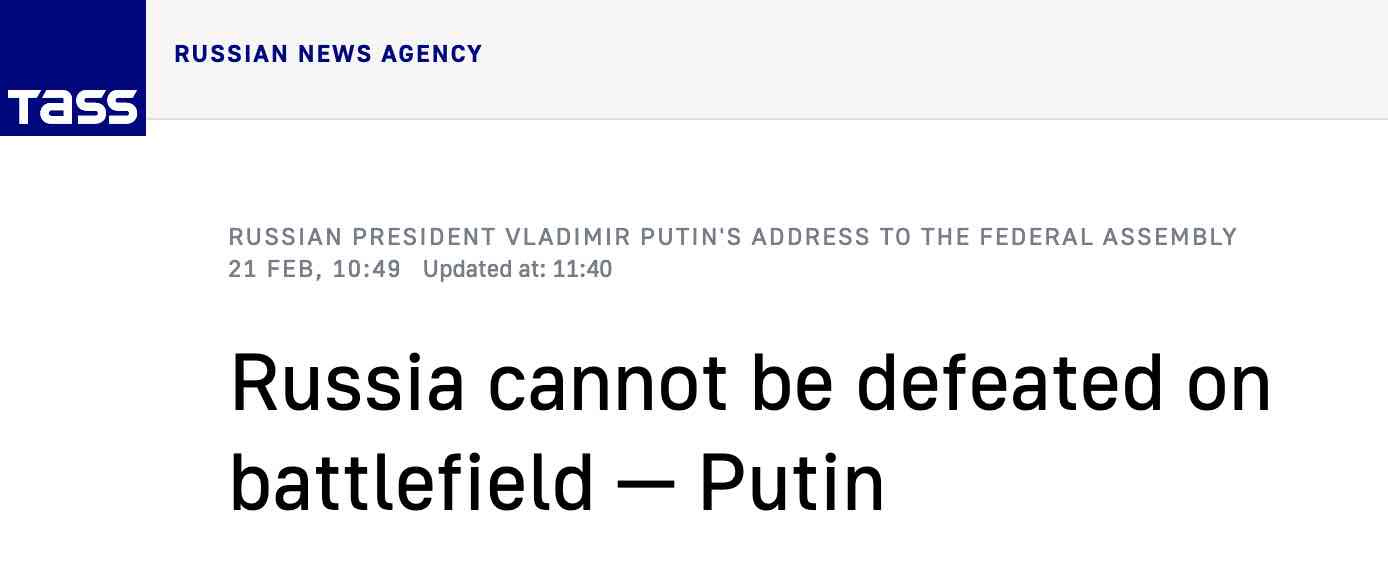
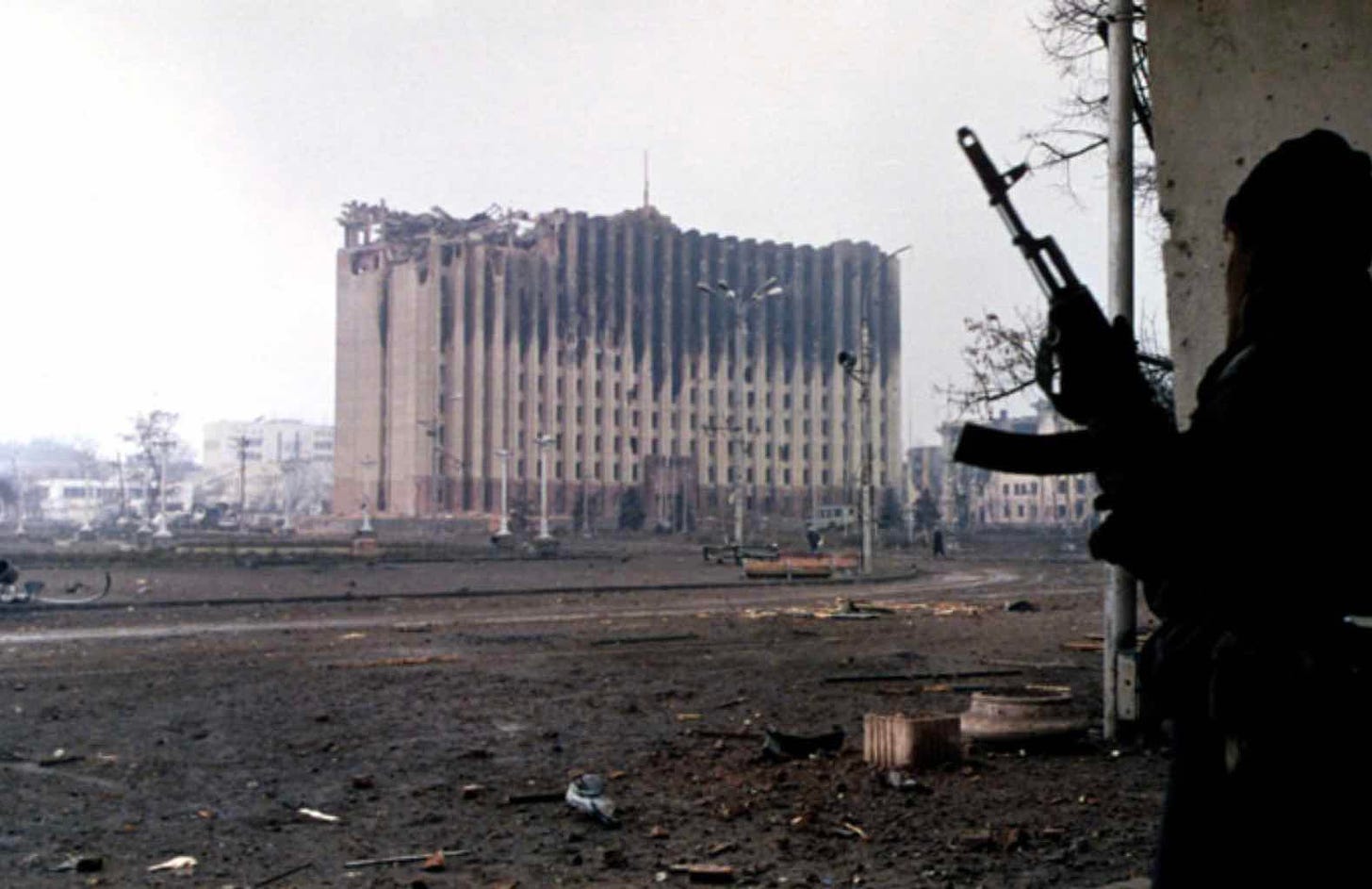
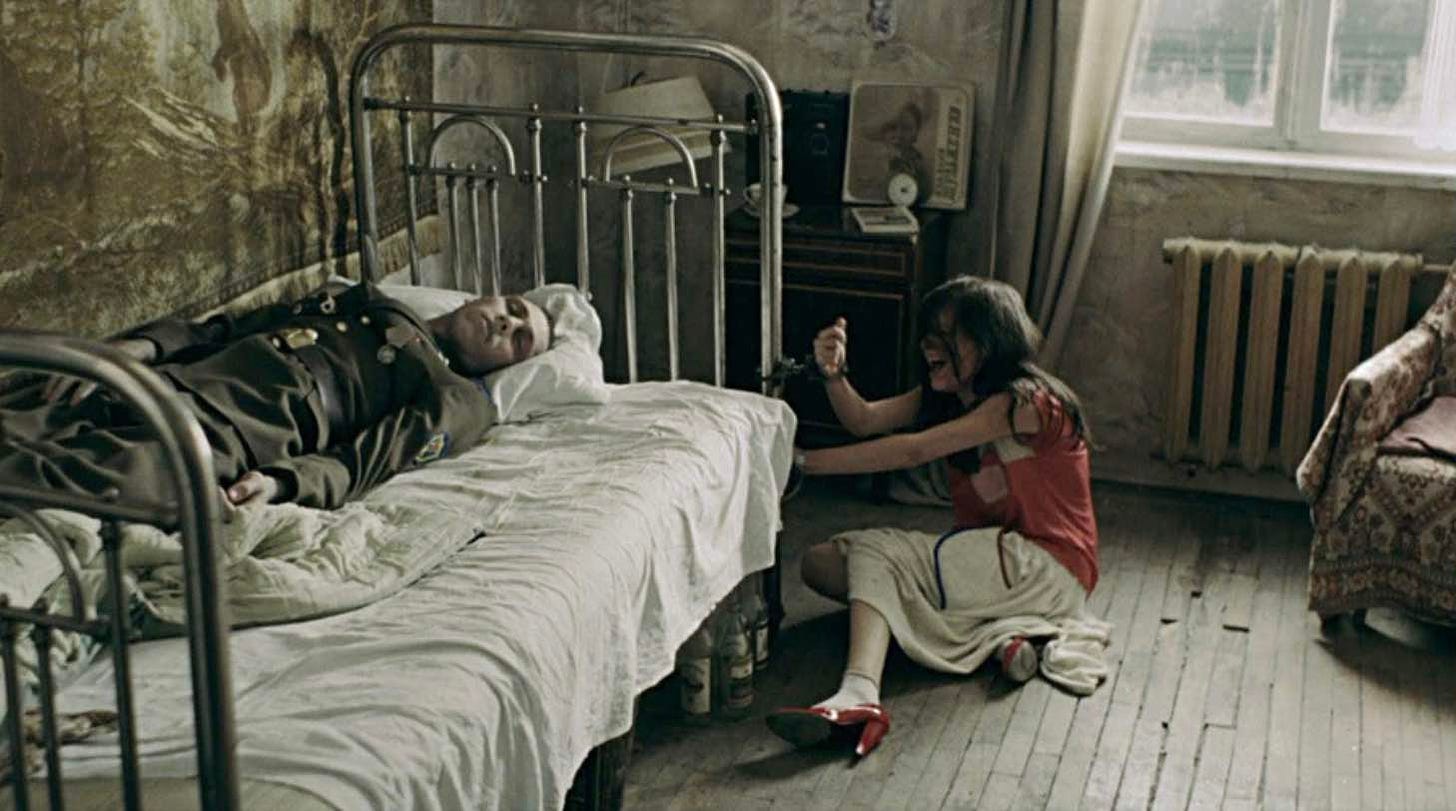

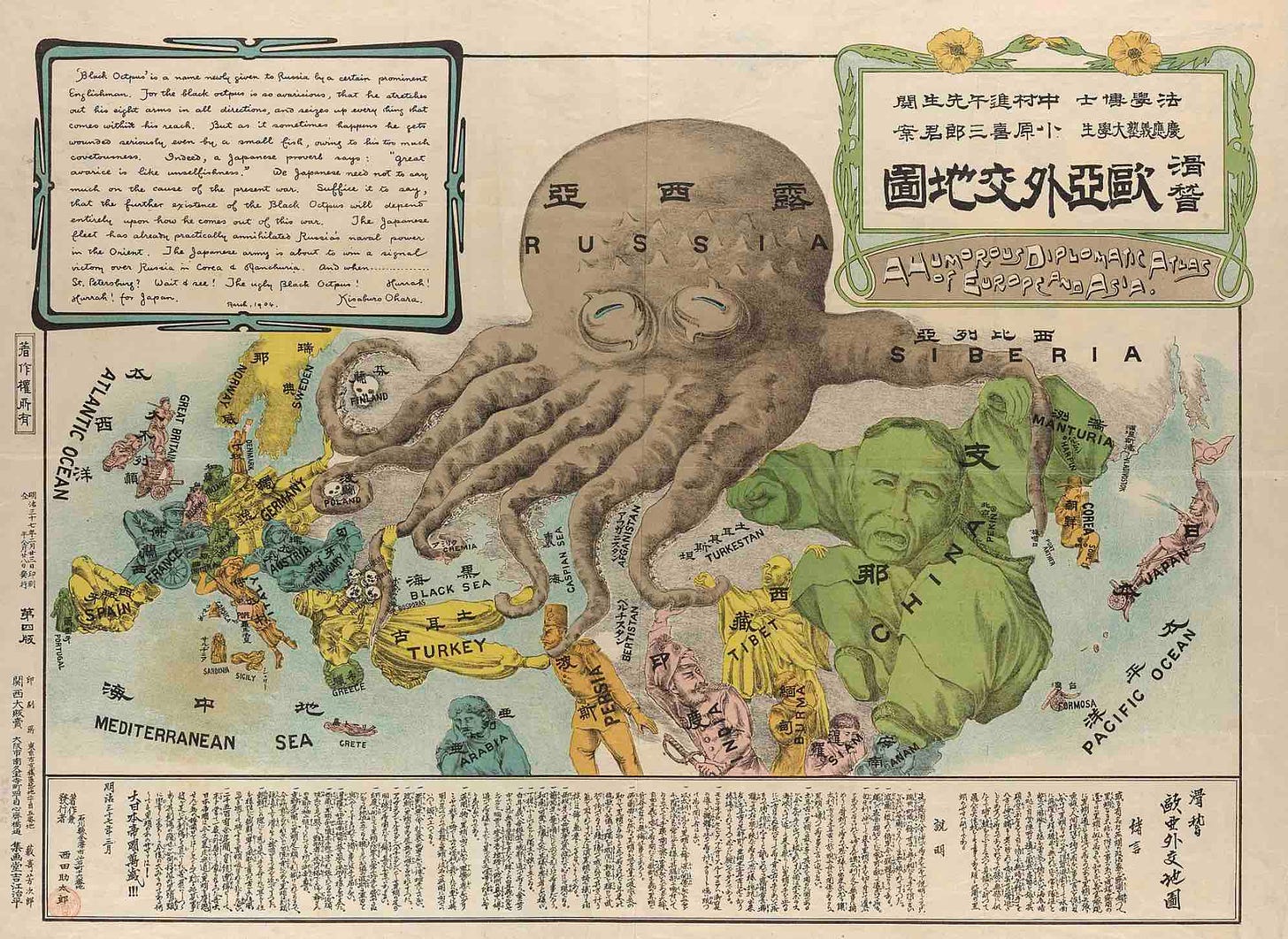
What about the most thorough beating they received from Germans in 1914-1917 ended in the most humiliated treaties Russia ever was part of - Brest Litovsk in 1918?
They gave up ALL POLAND, UKRAINE, BALTICS and more (including Donbas!!!)
Bolsheviks were able to re-claim part of it only because Germany was beaten in the West and evacuated Ober-Ost army
Interesting post, as always! There is yet one Russian defeat that slipped through: The Cold War defeat. Sure, it was not suffered in a direct military confrontation, but it was much more painful and humiliating for present day Russia than all other defeats listed; to the point that we can see Putinist RF as a vehicle for making it up and live glorious semi-Soviet life again with military might, interventions in Middle East or Africa, and rockets and moon vessels thrown into the space (with typically Soviet success ratio). True, Russians will not stop until defeated totally, and it opens interesting topic: could have US done more in 1990's and 2000s to make sure that this old vourdalak is nailed for good in its coffin?